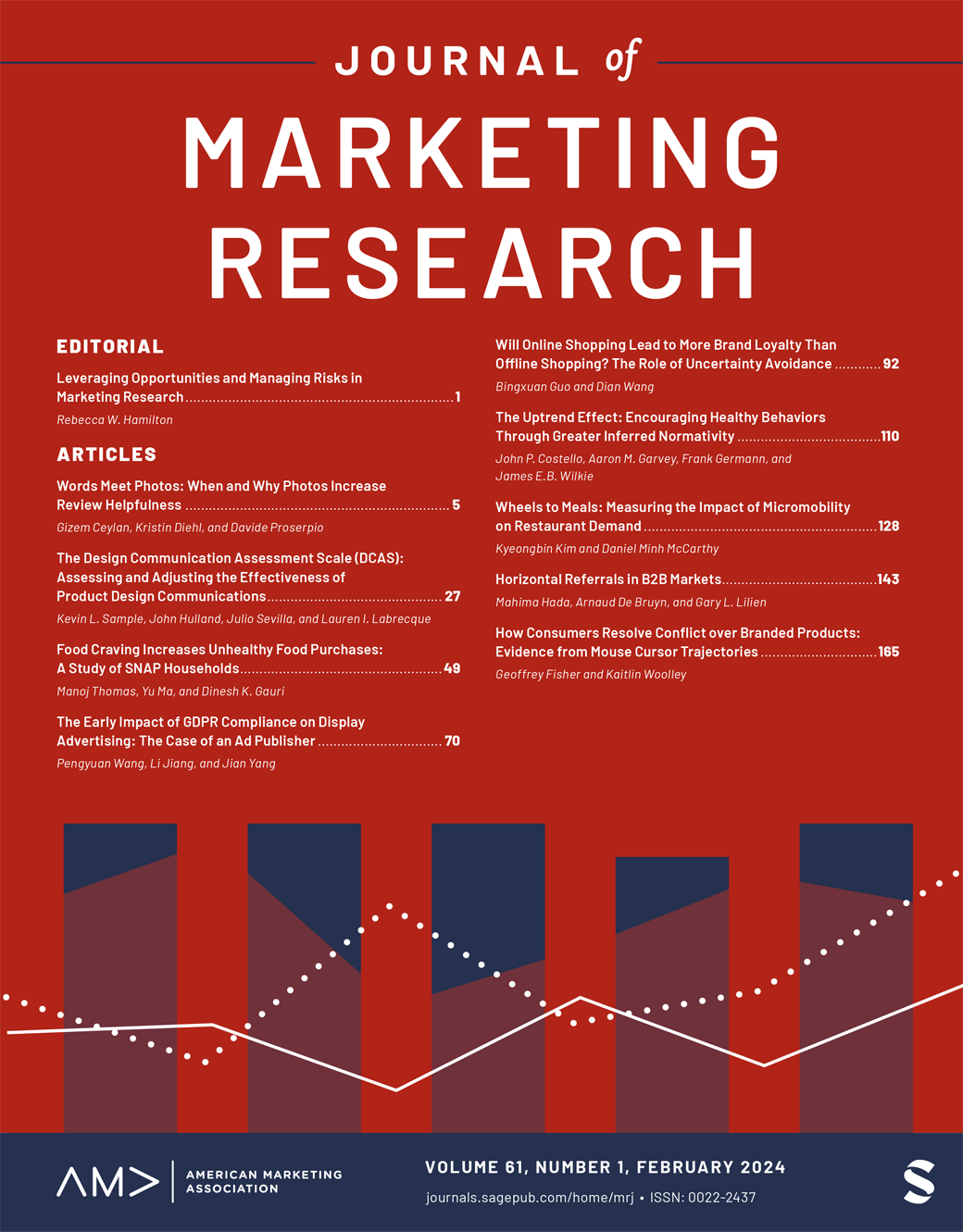Lobbying and Product Recalls: A Study of the U.S. Automobile Industry
IF 5.1
1区 管理学
Q1 BUSINESS
引用次数: 1
Abstract
Noting the proliferation of product recalls and extensive use of lobbying in some critical product markets (e.g., automobiles, medical equipment), the authors examine the relationship between lobbying and product recalls. Lobbying does not alter product quality, so an efficiency perspective would suggest no relationship. However, a legitimacy-based institutional theory perspective and associated regulation models suggest that lobbying reduces voluntary firm-initiated and mandatory regulator-initiated recalls. To provide insights into these questions, the current study explores nine years of multisource data from the automotive industry, related to recalls and lobbying. The results, obtained with an instrumental variable approach, support dual impacts of lobbying for reducing both voluntary and mandatory recalls. Defect severity and media coverage moderate the effects, and the data support full indirect moderation, such that the interaction between media coverage and lobbying mediates the interaction between defect severity and lobbying. In terms of effect sizes, approximately $404,367 ($1.66 million) more in lobbying expenditures is associated with one fewer voluntary (mandatory) recall, assuming a typical average recall of 235,638 vehicles. This study highlights lobbying as an important (marketing) tool that automotive companies use to manage their regulatory environment, with deep implications for policy making, research, and practice.游说与产品召回:美国汽车工业研究
注意到一些关键产品市场(如汽车、医疗设备)中产品召回的激增和游说的广泛使用,作者研究了游说与产品召回之间的关系。游说不会改变产品质量,因此从效率的角度来看,没有关系。然而,基于合法性的制度理论视角和相关的监管模型表明,游说减少了企业自愿发起的召回和强制性监管者发起的召回。为了深入了解这些问题,本研究对汽车行业九年来与召回和游说相关的多源数据进行了研究。使用工具变量方法获得的结果支持游说对减少自愿和强制性召回的双重影响。缺陷严重程度和媒体报道对效果有调节作用,数据支持完全间接调节作用,即媒体报道和游说之间的交互作用中介缺陷严重程度和游说之间的交互作用。就效应大小而言,假设平均召回235,638辆汽车,大约404,367美元(166万美元)的游说支出与一次自愿(强制)召回的减少有关。这项研究强调,游说是汽车公司用来管理监管环境的重要(营销)工具,对政策制定、研究和实践具有深远的影响。
本文章由计算机程序翻译,如有差异,请以英文原文为准。
求助全文
约1分钟内获得全文
求助全文
来源期刊

Journal of Marketing Research
BUSINESS-
CiteScore
10.30
自引率
6.60%
发文量
79
期刊介绍:
JMR is written for those academics and practitioners of marketing research who need to be in the forefront of the profession and in possession of the industry"s cutting-edge information. JMR publishes articles representing the entire spectrum of research in marketing. The editorial content is peer-reviewed by an expert panel of leading academics. Articles address the concepts, methods, and applications of marketing research that present new techniques for solving marketing problems; contribute to marketing knowledge based on the use of experimental, descriptive, or analytical techniques; and review and comment on the developments and concepts in related fields that have a bearing on the research industry and its practices.
 求助内容:
求助内容: 应助结果提醒方式:
应助结果提醒方式:


